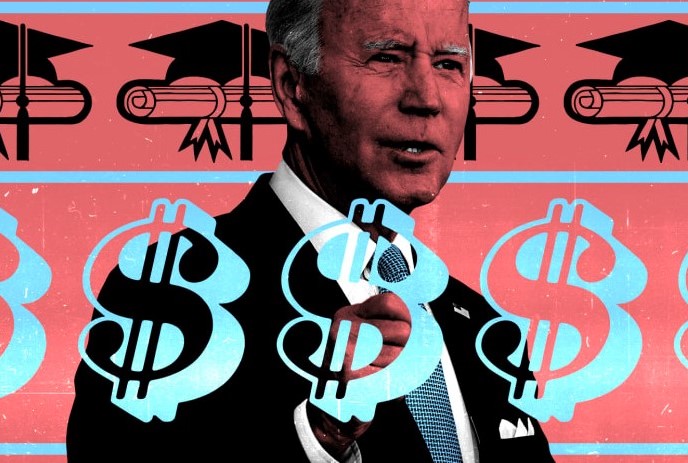Like many other people my age, I am in possession of tens of thousands of dollars’ worth of student loan debt. I am also one of the lucky 44.7 million who dreads the looming loan repayments that will come due again on February 1, 2022.
Financial advisor Chris Kampitsis wrote in a piece for Forbes earlier this year, “Short of winning the lottery, there is often no feasible alternative for students with limited means to pay for college.” Indeed, the lack of funding alternatives is made obvious by the number of indebted borrowers. According to the Education Data Initiative, 44.7 million people have outstanding student loans in the United States, with the average debt at over $36,000.
Imminent student loan repayments come alongside news of the Biden administration’s passage of a $768 billion defense bill — “the largest military spending bill since World War II,” which could cover the cost of universal tuition at public universities several times over, with still enough money left over to get the U.S. functioning solely on renewable energy by 2050.
The passage of this excessive defense bill while President Biden — who ran on the platform of student debt cancellation — buckles down on a February repayment date is a slap in the face to all young voters who were promised better treatment under his presidency. Many people have taken to social media their frustration at Biden’s backtracking and their predictions that this effective betrayal is likely to hurt Democrats during the upcoming midterm elections.
On December 8, Senate Majority Leader Chuck Schumer (D-N.Y.), Sen. Elizabeth Warren (D-Mass.), and Rep. Ayanna Pressley (D-Mass.) sent a letter to the White House urging the President to immediately cancel $50,000 in student loan debt per borrower, detailing the positive effects of this forgiveness.
“The cancellation of up to $50,000 of student debt would relieve an enormous burden from borrowers while pumping billions of dollars per year back into our national economy,” wrote the three lawmakers, who have been leading the push for cancellation since last year.
The letter also communicated the dangers of allowing repayments to begin in February. A recent survey of more than 33,000 student loan borrowers conducted by the Student Debt Crisis Center found 89% of borrowers are not financially secure enough to resume payments in February. Even before the pandemic, more than half of all student loan borrowers were either in default, forbearance, deferment, or simply not making payments on their student debt.
With rising inflation, there is even more of a case for debt cancellation. Mike Pierce, executive director of the Student Borrower Protection Center, said in a statement:
“Today’s economic data make the strongest case imaginable for a change of course as the Biden administration rushes headlong into a hasty and poorly timed restart of the entire student loan system. American families today are being forced to pay more to meet their basic needs, as rent, food, and energy prices skyrocket. Adding the burden of a student loan bill will stretch millions of families’ finances to the breaking point. Washington does not need this money; American families do.”
Restarting the repayment process will not only damage the economy; it will take a toll on the wellbeing of the indebted. Student loan debt has become a major source of anxiety among many Americans, resulting in a mental health crisis.
It’s not surprising that calls for reducing the repayment burden have grown loud amid debts that to afford homes, start families, or simply survive. Writing for the anti-poverty nonprofit CLASP, J Geiman argued the importance of widespread student loan cancellation in alleviating national financial anxiety:
“This stress cannot be therapized away. We need real relief in the form of widespread student loan forgiveness. The Biden administration has already cancelled $9.5 billion in student loans for permanently disabled borrowers and those defrauded by for-profit institutions. This is a step in the right direction — but it is not enough.”
It is imperative that President Biden follow through on his campaign pledges for student loan forgiveness, since the American people have not received what they were promised. As of now, it seems as though my fellow debtors and I will look to the new year with uncertainty and anxiety as our payments begin again.
Image via Getty Images

